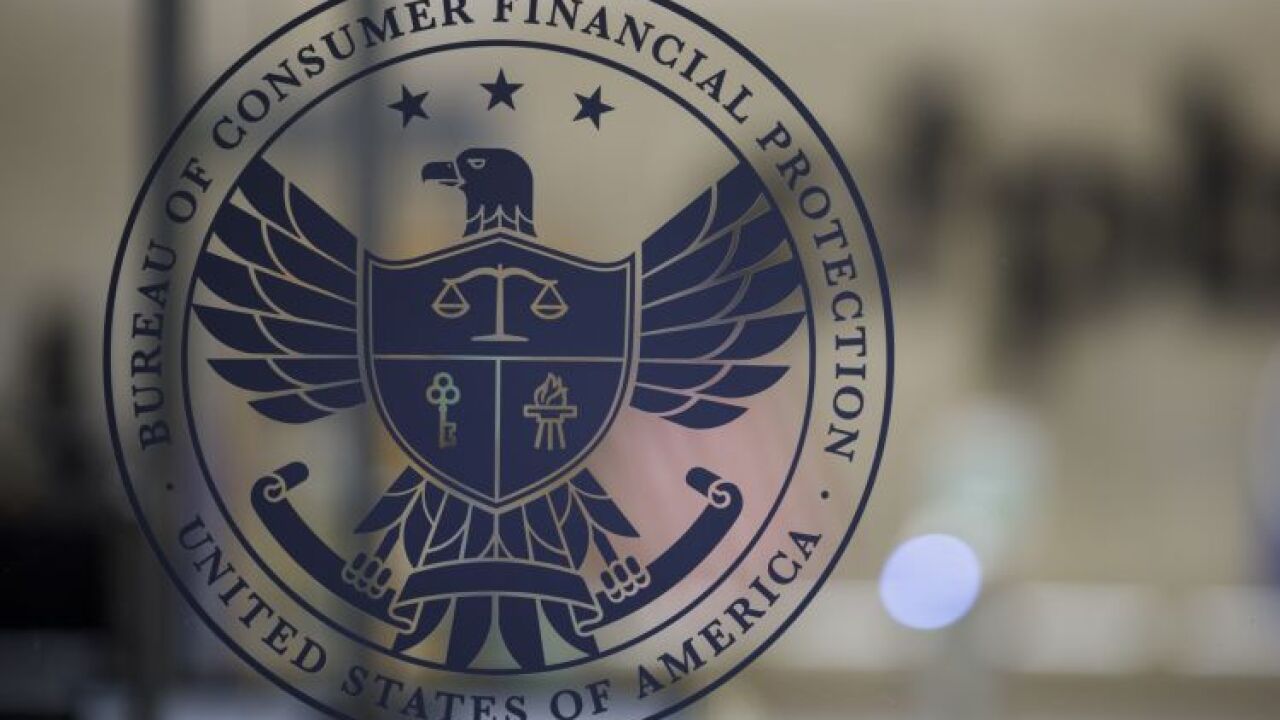-
The company, which enjoys a large market share as a data aggregator to fintechs and banks, is adding account onboarding, identity verification and fraud detection to the array of services it offers.
May 18 -
A clear, cross-agency regulatory framework is needed to help the industry embrace the promise of this new financial services paradigm.
May 16 MX
MX -
The data aggregator and challenger bank have formed a partnership to let customers of Green Dot’s mobile banking app use any of the 6,000 fintech apps in Plaid’s ecosystem.
March 15 -
The Consumer Financial Protection Bureau is in the early stages of developing a rule that could give bank customers far more say in how their information is being accessed by fintechs and data aggregators. What the final rule looks like will depend on how much consumers already know about the way their data is collected, stored and sold.
January 25 -
The Consumer Financial Protection Bureau is more than a year away from issuing a proposal on consumers’ right to control the flow of their data between banks and third parties such as fintechs, according to people familiar with the bureau’s thinking. Many previously expected a plan to arrive this spring.
January 12 -
The data aggregator assembled a group of technology companies that has developed a set of security standards for startups. It is open for comment ahead of an anticipated implementation in the second half of next year.
November 16 -
Even with an industry-driven standard in place, some institutions still resist parting with client information.
October 6 -
American banks need the kind of clear rules European institutions have enjoyed for several years if they're to become leaders in sharing consumer data with fintechs.
October 6 Zeta
Zeta -
Vendors including Akoya, Plaid and MX are trying to help banks manage and view their application programming interfaces through data portals as an alternative to scraping consumers’ login credentials.
September 20 -
The bank's technology team was trying to figure out how to develop a system similar to the respected software program of Brown Brothers Harriman's investor-services unit. Now that State Street is buying that same unit, it can drop the project.
September 8 -
The U.S. and its neighbor to the north are each developing frameworks to give consumers control over financial data and allow companies to transfer account information. A recently issued Canadian government report could influence efforts in both countries, analysts say.
August 17 -
The size of the financial commitments was not disclosed, but they add to a $425 million fundraising round that the data aggregator announced earlier this year.
August 17 -
The San Francisco data aggregator has committed to minimizing how much data it extracts from bank accounts.
August 6 -
Banks should favor the development of U.S. data rules that let them freely share consumer information with, and receive it from, fintechs. The alternative, where banks merely send data to third parties for a fee, would be less competitive and less beneficial for all parties.
August 4 Plaid
Plaid -
Banks should let consumers download their account data and transfer it to other financial providers, according to a new presidential order. Some experts argue aggregators are already making this happen, but others say the directive implies more consumer control.
July 12 -
It's the latest move in an industry shift toward more secure sharing of bank account data with fintechs and away from screen scraping.
May 13 -
As the bureau writes data-sharing rules, the third-party firms that work with fintechs say oversight by the agency would be more efficient — and better for consumers — than being policed by their bank partners.
February 12 -
The three banks have joined others in a program endorsed by The Clearing House that aims to make data-sharing agreements with aggregators like Plaid and Finicity work more effectively.
January 26 -
Now that the data aggregator is no longer joining forces with the card network, it’s on to plan B, which includes developing better relationships with banks.
January 19 -
The Pittsburgh bank says the data aggregator deceptively uses PNC's logo in obtaining bank customers' login credentials.
December 23














